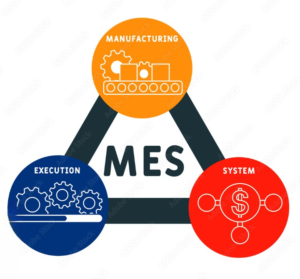Manufacturing Execution System
Do I Need a Manufacturing Execution System (MES)?
Determining whether your plant needs a manufacturing Execution System (MES) is crucial for optimizing operations and staying competitive. An MES can be the key to gaining real-time visibility and control over your production processes. You may need to implement or upgrade to an MES if you’re experiencing any of the following challenges:
Signs That Your Plant Needs an MES
Lack of Efficiency Insight
If you’re uncertain about how efficiently your production lines are operating, it’s time to consider an MES. Without this system, it’s challenging to monitor and improve the efficiency of your plant.
Unidentified Top Issues
An MES can help you identify and prioritize the top five issues in your plant. Without it, you might struggle to pinpoint the most critical problems that need attention.
Inaccessible Data for Decision-Making
In today’s fast-paced environment, access to current data is crucial for making informed decisions. If you can’t easily access the data you need, an MES can provide real-time insights at your fingertips
Unexplained Downtime
If you’re not sure why your production lines stop running, an MES can offer detailed analytics that reveal the root causes of downtime, allowing you to address and minimize these interruptions.
Raw Material Problems
Issues with raw materials can significantly impact production. An MES can track and analyze material quality and availability, helping you manage and mitigate these problems.
Shift Performance Issues
If certain shifts consistently experience longer outages or more frequent problems, an MES can help you monitor and compare performance across shifts, identifying areas for improvement.
Frequent Machine Failures
Knowing the biggest causes of machine failures and downtime is essential for maintaining continuous production. An MES provides the data you need to prevent breakdowns and extend equipment life.
Maintenance Tracking
Maintenance is critical for plant efficiency and longevity. If you’re unsure whether maintenance is being done on time or effectively, an MES can automate tracking and ensure maintenance tasks are completed as scheduled.
Supplier Performance
Identifying your best and worst suppliers is crucial for maintaining quality and efficiency. An MES can track supplier performance and help you make informed decisions about your supply chain.
Indicators That It’s Time to Replace an MES
Difficulty Meeting Orders
If you’re struggling to keep up with orders, an MES can streamline your production process and help you meet demand more efficiently.
Increased Competition
If you’re losing to competitors more often, an MES can give you the edge by optimizing your operations and reducing production costs.
Lack of Qualitative Data
Without qualitative data on your plant’s performance, it’s difficult to gauge success and areas for improvement. An MES provides detailed analytics that allow you to assess and enhance your operations.
Price-Based Business Losses
If you’re losing business because of price, an MES can help you identify inefficiencies and reduce costs, making your pricing more competitive.
Excessive Downtime
Frequent downtime can cripple your production. An MES minimizes downtime by providing real-time data and predictive maintenance tools.
Multi-Plant Management Issues
Managing multiple plants without the ability to compare performance is a challenge. An MES allows you to standardize processes and compare results across locations, ensuring consistent performance.
Underperforming Systems
If your current systems aren’t working well, it may be time to replace them with a robust MES that can integrate all aspects of your manufacturing process for seamless operations.


